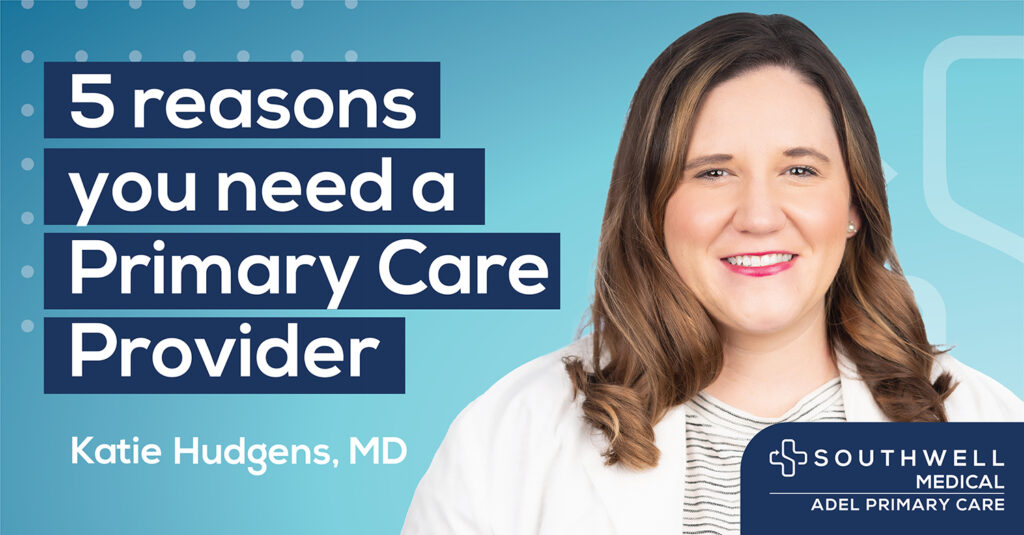Are you the kind of person who will only think about going to the doctor when it’s absolutely necessary?
We understand. Going to the doctor or hospital, especially when nothing is seemingly wrong with your health, can seem time-consuming, nerve-wracking, and possibly even expensive. But hear us out. What if we told you that establishing a relationship with a primary care provider (PCP) could prevent the things we just mentioned?
Before we tell you why you need one, let’s talk about what a PCP actually is. A PCP is a health care practitioner who sees people that have common medical problems. This person is most often a doctor, but can also be a physician assistant or a nurse practitioner. You may recognize the term family medicine provider, who sees patients of all ages. There are also PCPs who only see adults, children, women, or older adults. It’s so important for everyone to have a relationship with a PCP; young or old, man or woman, it doesn’t matter.
We talked with Dr. Katie Hudgens, a primary care provider who practices at Southwell Medical Adel Primary Care to learn more about PCPs. Here are the top five reasons she says you need a PCP.
1. Your PCP is your personal health captain and first line of defense
Think of your PCP as the one medical expert who knows everything about you; your family medical history, your own medical history, every surgery or procedure you’ve had, all the medicines you take, and more. The purpose of a PCP is to be your first line of defense when you are experiencing an issue. PCPs are on your side, and they want to make sure you are your healthiest self.
“If you’ve never had a PCP and have used a walk-in clinic or emergency room as your source of primary care, you are really missing out on an excellent resource to have someone be on your side at all times,” said Dr. Hudgens.
2. PCPs provide preventative care
Contrary to popular belief, you can see a doctor aside from times when you are sick or experiencing a health issue. It may seem counterintuitive, but going to the doctor when you aren’t sick can actually keep you out of their office!
“By establishing a relationship with a PCP and following their advice, they are able to help you prevent diseases like high cholesterol, diabetes or high blood pressure, help you assess your risk for cancer, and follow up with you every year to track different trends,” said Dr. Hudgens. “If they see something that is off or different from last year or last month, it can help them identify a problem before it gets worse.”
3. PCPs provide long-term care for chronic diseases
Let’s say you already have been diagnosed with high blood pressure. How do you know if your numbers have improved if you never see your PCP? Your PCP helps to make sure your medications are working, you’re following protocols, and more importantly – they want to know how they can help you manage your chronic disease.
4. You’ll lower your healthcare costs
It’s no secret that healthcare can be expensive. But, preventative services are usually covered by insurance with annual visits or lab work. By managing your health problems before they advance too far, you could lower your overall healthcare costs by avoiding expensive tests and hospital stays.
5. Get into specialists quicker with referrals
The healthcare system as whole can be hard to navigate on your own. It can be overwhelming to even know where to start with the multitude of specialists that are available. Dr. Hudgens points out, “The great thing about having an established PCP is that they have access to all kinds of specialists – and can get you into see them much faster than if you called without a referral.”
Hopefully we have convinced you that if you don’t have one, it’s so important to find a PCP and schedule an appointment with them immediately. Don’t know where to start? Visit mysouthwell.com/providers and search by specialty; you can choose either “Family Medicine” or “Primary Care” in the “search by specialty” menu. Now, go make that phone call and schedule your appointment!
